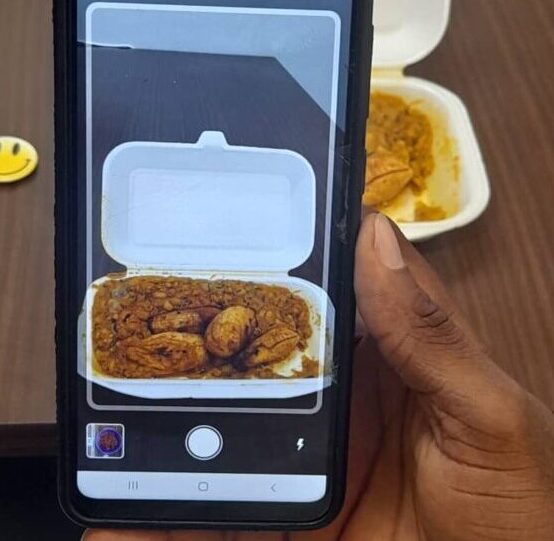Nudging for Good

Project Lead(s)

Research Fellow
Project Background
Nudging for Good (NFG) is a new collaborative project aimed at developing, validating and examining the feasibility of using AI-based technology to improve the diets of adolescent girls in urban Ghana and Viet Nam. The project involves a new interdisciplinary collaboration between IFPRI, Penn State/FAO, the University of Ghana, Thai Nguyen National Hospital, Thai Nguyen University of Pharmacy and Medicine, and the National Institute of Nutrition in Viet Nam working together to extend new technology with potential to change “business as usual” and improve the lives of millions of adolescents.
Micronutrient deficiencies are widespread, with an estimated prevalence of anaemia of 52%, and 44% among adolescent girls. In parallel, approximately 1 in 5 children in urban areas are estimated to be overweight or obese. Shifts to unhealthy diets and reductions in physical activity contributed to the global increase in unhealthy weights.
Behaviors related to food choice are mediated by individual and environmental factors including food availability, access, social influence, taste and preferences. There's a need to identify policy levers to address the shift from under- to over-nutrition and related non-communicable diseases known as the nutrition transition. Existing technology assisted dietary assessment is constrained by lack of validity testing and feasibility of use in LMICs.
We are developing and assessing the validity and feasibility of using innovative AI mobile technology that provides offline real-time diagnostics and tailored "nudging" on dietary intake as a strategy to improve diets and nutrition of adolescents living in urban settings in Ghana and Viet Nam. The tool will be used to provide nutritional advice tailored to each individual, allowing users to make decisions to improve their diets, offline, without the need to access the cloud. Moreover, the AI tool could provide governments and development partners with real-time diagnostics to strengthen surveillance systems in health and nutrition. Our hypothesis is that by addressing knowledge-related barriers to healthy food choices using information tailored to existing circumstances, adolescents will improve behaviors related to food consumption and diets, and potentially improving behaviors of their peers.
Key Publications
Braga, B. C., Nguyen, P. H., Aberman, N-L., Doyle, F., Folson, G., Hoang, N.T., Huynh, P.N., Koch, B., McCloskey, P., Tran, L.M., Hughes, D., Gelli, A., 2022. Exploring an Artificial Intelligence–Based, Gamified Phone App Prototype to Track and Improve Food Choices of Adolescent Girls in Vietnam: Acceptability, Usability, and Likeability Study. JMIR Formative Research 6(7): e35197.
Braga, BC; Aberman, NL; Arrieta, A; Bannerman, B; Burns, A; Folson, G; Huynh, P; Koch, B; McCloskey, P; Nguyen, PH; Zakariah-Akoto, S; Hughes, D; and Gelli, A. 2021. Design of a mobile phone-based Artificial Intelligence (AI) application to assess dietary intake and provide nudges to improve healthy eating choices: Formative research in Ghana and Vietnam. IFPRI Discussion Paper 2024. Washington, DC: International Food Policy Research Institute (IFPRI).
Team
Internal Collaborator(s)
Dr. Daniel Arhinful, Dept of Epidemiology
Prof Kwabena Mante, Dept of Parasitology
Dr Bright Adu, Dept of Immunology
External Collaborator(s)
Dr Aulo Gelli, Research Fellow, International Food Policy Research Institute (IFPRI), Washington DC
Dr Phuong Nguyen, Research Fellow, International Food Policy Research Institute (IFPRI), Washington DC
Dr David Hughes, Associate Professor of Entomology and Biology, Huck Institutes of the Life Sciences, Penn State University.
Dr Hoang Thu Nga, Adjunct Faculty and Technical Advisor, National Institute of Nutrition
Dr Marie Ruel, Director, Poverty, Health and Nutrition Division, International Food Policy Research Institute (IFPRI), USA
Funder(s)
Foundation Botnar




